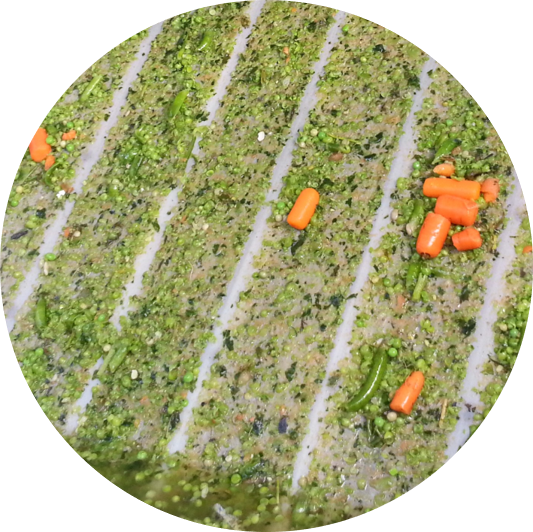Food
Water and sustainability have always been an important point to the food industry. The industry is incredibly varied, with many different types of wastewater. The large volumes of water used result in large volumes of wastewater containing mainly organic compounds and nutrients, and often also fats, oils and grease.
Since wastewater treatment is no core business, smaller food companies discharge their wastewater almost untreated after simple mechanical screening. Larger companies frequently have a biological treatment and then discharge their effluent.
If wastewater is discharged directly, an enhanced pre-treatment with finecreens usually has a payback period of 1 to 3 years. In case biological treatment is installed, this treatment plant can be relieved from high loads of organic material and nutrients, decreasing sludge production and operational costs.
Relieving biological WWTP
Food
Water and sustainability have always been an important point to the food industry. The industry is incredibly varied, with many different types of wastewater. The large volumes of water used result in large volumes of wastewater containing mainly organic compounds and nutrients, and often also fats, oils and grease.
Since wastewater treatment is no core business, smaller food companies discharge their wastewater almost untreated after simple mechanical screening. Larger companies frequently have a biological treatment and then discharge their effluent.
If wastewater is discharged directly, an enhanced pre-treatment with finecreens usually has a payback period of 1 to 3 years. In case biological treatment is installed, this treatment plant can be relieved from high loads of organic material and nutrients, decreasing sludge production and operational costs.

 Nederlands
Nederlands Deutsch
Deutsch